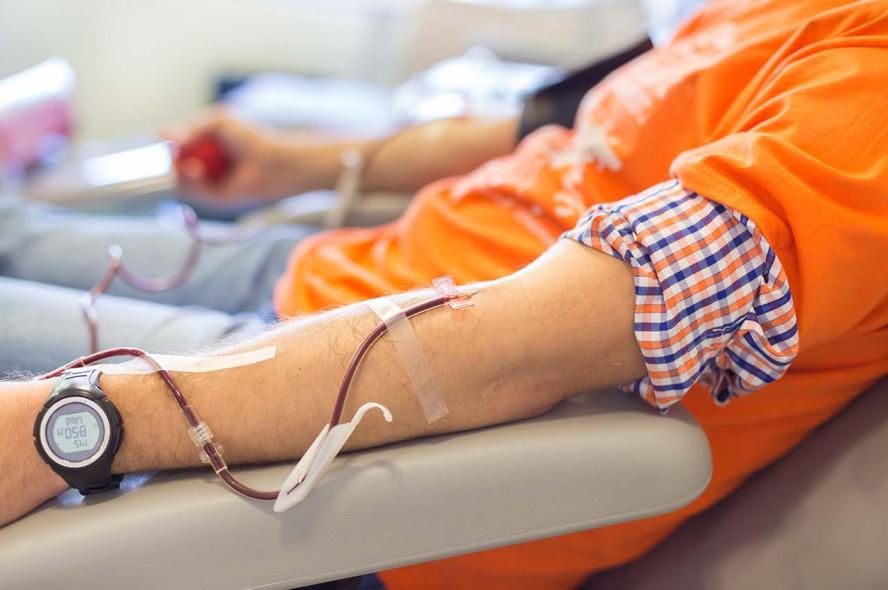-
About
- Departments & Offices
-
Academics
- Physician Assistant
- Special Master’s (MBS)
-
Admissions & Financial Aid
- Tuition & Fees
-
Student Life
-
- Student Resources by Program
- Academic & Student Support
- Wellness & Wellbeing
- Student Experience
- Events & Traditions
-
-
Research
- Research Labs & Centers
-
Local & Global Engagement
- Global Health Programs
- Community Engagement
What is causing the national blood shortage?
Hematologist Raymond Comenzo, a professor of medicine at Tufts University School of Medicine and medical director of the Blood Bank and Transfusion Medicine Laboratory at Tufts Medical Center, fills us in

COVID-19 has made blood collection more difficult. Nurses are retiring and, like many businesses during the pandemic, blood centers have not been able to stay fully staffed. And there appears to be a reluctance among folks to come in and donate blood during the pandemic.
But that’s not the major reason for the shortage. The blood donation landscape as a whole has really changed. The blood supply in the United States has been under pressure for several reasons for the past five or six years. Number one, smaller blood centers had trouble surviving shrinking profit margins as the demand for blood went down due to improved medical practices. The old economic model no longer worked for small centers and we went through several years of big blood centers buying up little ones. The Red Cross has been under similar pressure and it has resulted in the reduction of services; in Massachusetts, the Red Cross no longer collects in the western part of the state. Number two, the donor pool is drying up. Older adults, who account for a large percentage of donations, are aging and younger donors are not replacing them quickly enough. With fewer centers and fewer donors, the system is not as responsive as before and it’s not always possible to meet unexpected surges in demand.
We try to restrict the utilization as best we can to make sure the patients who really need blood products get the blood they need. There are drugs, for example, that can stimulate red blood cell production; we have recommended their use for individuals who are chronically bleeding, reducing their need for transfusions.
The blood supply took a major hit about three years ago and we began working with emergency management here at the medical center on plans to deal with it. There are times when our inventory goes down very low and we really have to evaluate every request that comes in. Shortages could potentially lead to the postponement of surgeries. Tufts Medical Center employees have asked about donating, and we have asked them to contact the Red Cross. Their response has been quite gratifying; healthcare workers do respond to emergency blood shortages. With that in mind, we are exploring the possibility of setting up a permanent blood donor program within Tufts Medicine, our newly named health system, drawing on the support of employees to help us overcome shortages. This will require the advice and guidance of the American Association of Blood Banks.
For anyone who would like to help meet the critical need, please contact the American Red Cross to set up an appointment to give blood. COVID isn’t a blood-borne disease, so you can’t give it or get it by donating blood, and all blood centers follow COVID protocols, including screening, to minimize the chances of airborne transmission during your visit. Giving is safe and straightforward and it helps us save lives.—as told to Mary-Russell Roberson